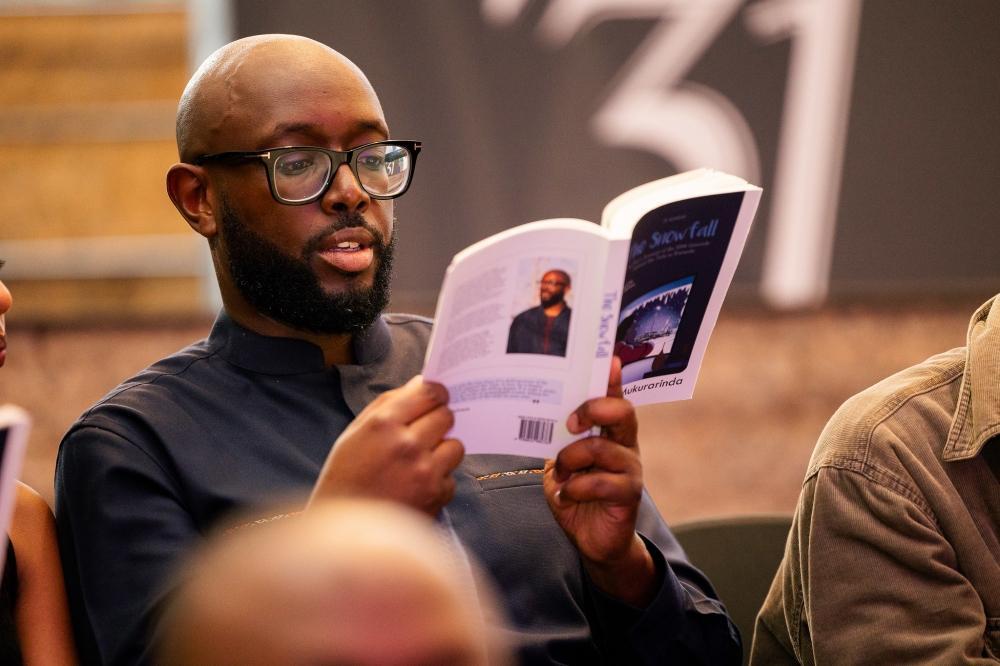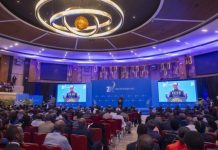Africa-Press – Rwanda. Gustave Mukurarinda, a 42-year-old survivor of the 1994 Genocide against the Tutsi and author, carries a burden of memory and unanswered justice.
Born and raised in Nyanza District, Mukurarinda grew up next to Vincent Nzigiyimfura, alias ‘butcher of Nyanza’, a wealthy businessman and community influencer who was one of the most feared masterminds of the 1994 Genocide in Southern Province.
“Their family was powerful, rich, and feared,” Mukurarinda recalled. “He [Nzigiyimfura] owned a butchery, shops, cars, and a huge house. People respected him, but also feared him.”
However, behind the success lay a dangerous ideology.
“Everyone in Nyanza knew the family’s extremist views,” Mukurarinda recalled. “Even as children, our parents warned us to be cautious around them.”
When the Genocide began in April 1994, Mukurarinda was just 11 years old. The massacres in Nyanza erupted slightly later than the killings in other regions. But the warning signs had already been detected, especially through the unusual night patrols organized by Nzigiyimfura.
“He was just a businessman, previously. But, overnight, he spearheaded the killings,” Mukurarinda said. “He led the patrols and set up roadblocks. He turned his business premisses into planning hubs for the killings.”
Mukurarinda’s pain is deep. On May 7, 1994, his mother was among those killed in an operation orchestrated by Nzigiyimfura and then-Bourgmestre [mayor] Celestin Ugirashebuja, one of the known genocide suspects living in the UK.
“They previously claimed that the killings had stopped. They told the people who were hiding the Tutsi to register them so as to ensure their safety. But it was a trap. That is how they got my mum and sister. They paraded them to gain trust, but killed my mother days later.” Luckily, his sister survived.
According to Mukuralinda, Nzigiyimfura’s brothers [Michel and Cyamatare] were also involved, setting up roadblocks in areas such as Remera and Gihisi. His vehicles transported Interahamwe militias while most meetings to coordinate the killings took place in his shop.
After the Genocide, Nzigiyimfura fled to Malawi, where he briefly eluded indictment before disappearing again.
In 2008, genocide survivors reported that he had resurfaced in Dayton, a city in western Ohio, in the midwestern region of the United States.
“Seeing his pictures on Facebook, with his family, living freely as though nothing happened, was like reopening a wound. We lost hope in ever seeing him brought to justice.”
However, the memory endured, shared in his tributes to his parents on social media.
In a post that went viral during Kwibuka 21 – commemoration of the 1994 Genocide, in 2021 – Mukurarinda tweeted: “My son will never know his grandparents, for the same reason I never knew mine. Both generations were wiped out for being Tutsi.”
“Ugirashebuja is protected by the UK. Nzigiyimfura, the ‘Butcher of Nyanza,’ found safe haven in the U.S. Both countries pride themselves on human rights but have failed to deliver justice.”
In a separate tribute to his mother, Mukurarinda detailed her final moments.
On May 6, warned by a neighbour that killers were approaching, his mother escaped, momentarily.
Unfortunately, the next day, a man named Bosco, who was once married to Mukurarinda’s aunt, betrayed his mother.
“She sat for two hours reading her Bible before the killers arrived. She asked to pray before dying. That’s the kind of dignity she had.”
Bosco’s betrayal was part of a larger pattern that allowed genocidaires like Nzigiyimfura to thrive.
“These men orchestrated one of the deadliest days in Nyanza and Kigoma. Thousands died. Yet they walk free in some of the world’s most powerful nations.”
Now, with the reports of Nzigiyimfura’s arrest, Mukurarinda, like other survivors in Nyanza, feels a glimmer of relief, though cautious.
“It’s only justice when he stands trial in Rwanda. Until then, the pain stays.”
For genocide survivors like Mukurarinda, justice delayed is justice denied, but not forgotten. Survivors welcomed Nzigiyimfura’s arrest and expressed hope that he will finally be put on trial for his role in the genocide, once the fraud charges in the US are resolved.
Nzigiyimfura, 65, taken into custody on June 12 in Dayton.
He made his initial court appearance the following day before the U.S. District Court for the Southern District of Ohio. According to a statement released by the U.S. Department of Justice on June 13, Nzigiyimfura faces one count of visa fraud and two counts of attempted naturalization fraud. If convicted, he could face up to 30 years in prison.
For More News And Analysis About Rwanda Follow Africa-Press






